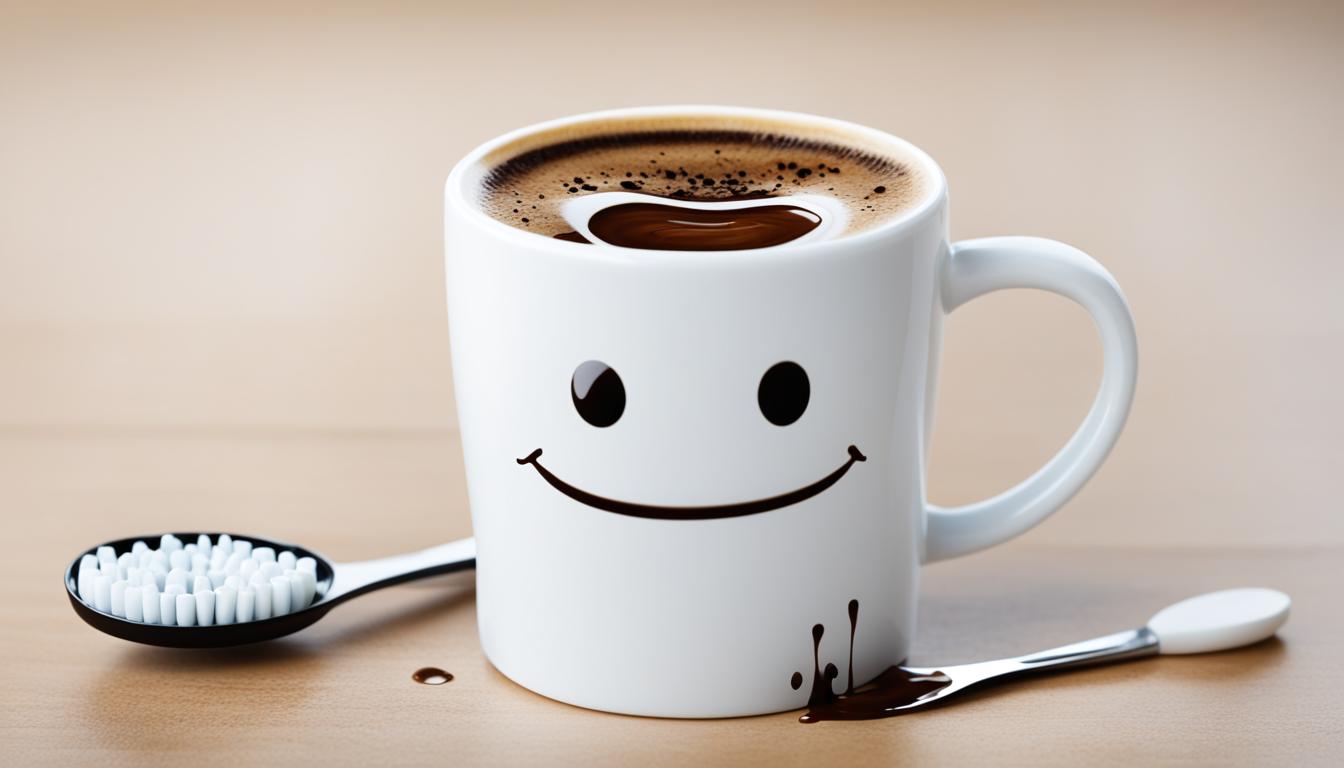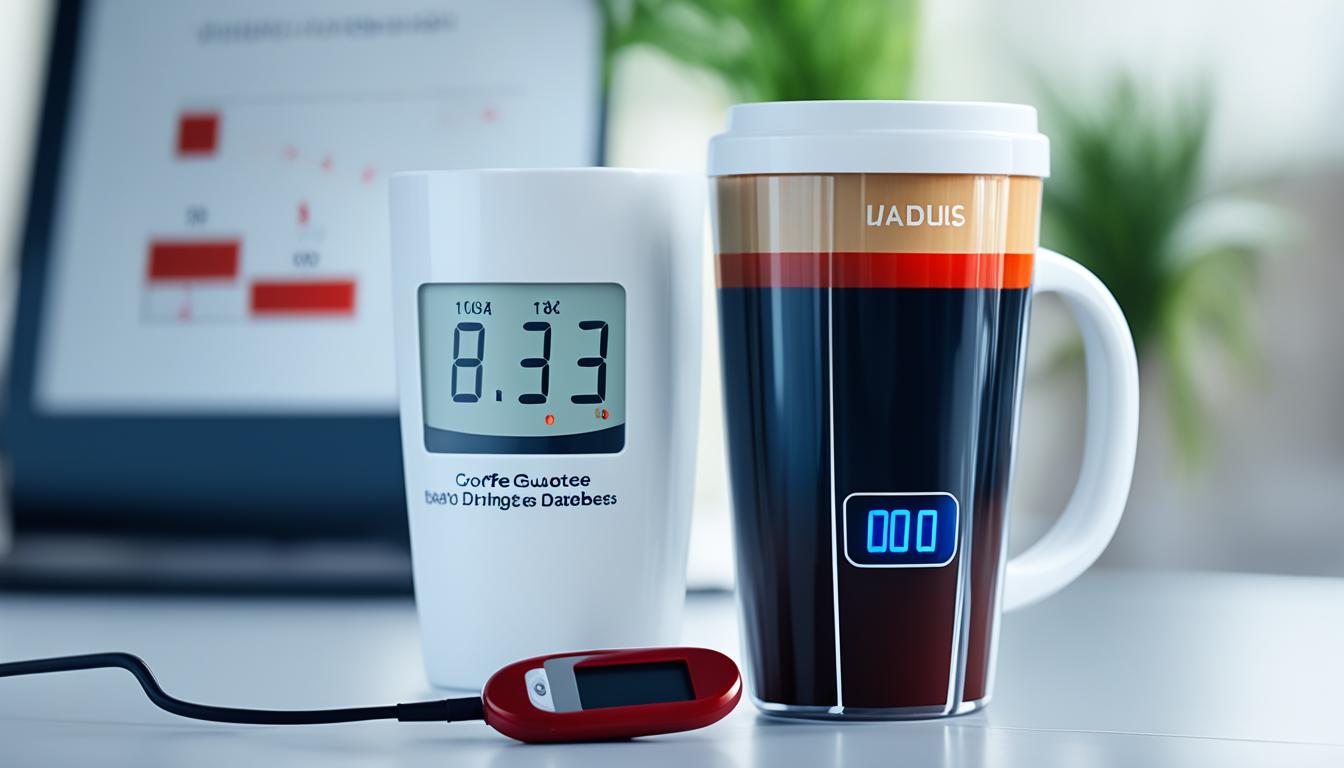Welcome to our informative article on the fascinating relationship between coffee, stress, and anxiety. Many of us turn to our favorite cup of joe as a way to find some relief from the daily stresses of life. But have you ever wondered how coffee affects our mental wellness? In this article, we will delve into the connection between coffee consumption and stress relief, anxiety management, and overall mental well-being.
As we explore this topic, we will touch on the potential benefits and drawbacks of coffee, the effects of caffeine on behavior, the association between caffeine intake and mental health, and more. Understanding the complexities of this relationship can empower us to make informed choices about our caffeine consumption and its impact on our mental wellness.
Throughout this journey, we will also discuss mindfulness techniques, relaxation strategies, and coping mechanisms that can complement a mindful coffee-drinking experience. So grab your favorite mug, sit back, and join us as we uncover the fascinating link between coffee, stress, and anxiety.
Key Takeaways:
- Coffee consumption can have both positive and negative effects on mental health.
- Caffeine intake is associated with changes in behavior, mood, and cognitive performance.
- The relationship between caffeine and mental health is complex and varies between individuals.
- Caffeine-induced anxiety can occur in sensitive individuals, but the effects can differ based on genetics and metabolism.
- Managing caffeine intake through moderation and self-awareness is crucial for maintaining mental wellness.
Effects of Caffeine on Behavior
Caffeine consumption has a significant impact on behavior, affecting various aspects such as mood, exercise performance, blood pressure, alertness, and attention. Research has shown that caffeine has the ability to enhance mood and increase feelings of alertness, promoting a positive mindset and a greater sense of well-being. It can also enhance exercise performance by reducing perceived fatigue and improving endurance.
Furthermore, caffeine has been found to improve cognitive functions, specifically attention and information processing speed. By stimulating the central nervous system, caffeine can increase focus and mental clarity, making it easier to concentrate on tasks and improve productivity.
However, it is important to note that the effects of caffeine can vary depending on individual sensitivity and the amount consumed. While moderate caffeine consumption typically leads to positive outcomes, excessive intake can have adverse effects such as headaches, drowsiness, anxiety, and nausea.
The impact of caffeine on behavior is particularly pronounced in children, as their developing central nervous system and smaller size make them more sensitive to its effects. It is crucial to identify thresholds for negative effects and tailor caffeine consumption accordingly to ensure optimal results.
To better understand the effects of caffeine on behavior, here is a comprehensive table outlining its impact on different aspects:
| Behavioral Aspect | Effect of Caffeine |
|---|---|
| Mood | Caffeine consumption can enhance mood and promote a positive mindset. |
| Exercise Performance | Caffeine can improve exercise performance by reducing fatigue and increasing endurance. |
| Blood Pressure | Caffeine may lead to a temporary increase in blood pressure. |
| Alertness | Caffeine increases feelings of alertness and wakefulness. |
| Attention | Caffeine enhances attention and information processing speed, improving focus and productivity. |
As you can see, caffeine has a profound impact on behavior, with both positive and negative consequences. It is crucial to strike a balance and consume caffeine in moderation to maximize its benefits while avoiding any potential adverse effects.
Associations between Caffeine Intake and Mental Health
Caffeine consumption is often used as a coping strategy for managing stress and perceived as beneficial for mood enhancement. However, the relationship between caffeine intake and mental health is complex. While low doses of caffeine have shown to reduce anxiety and elevate mood, high caffeine intake has been associated with higher anxiety levels and symptoms of depression. Individual sensitivity, psychiatric history, and other factors can influence the effects of caffeine on mental health. It is important to consider the individual’s response to caffeine and their overall mental well-being.
| Effects of Caffeine Intake | Benefits | Drawbacks |
|---|---|---|
| Reduced Anxiety | – Improved mood | – Higher anxiety levels |
| Elevated Mood | – Increased alertness | – Symptoms of depression |
Individual Sensitivity
Each person reacts differently to caffeine. Some individuals may find that low to moderate doses help alleviate stress and boost their mood, while others may experience heightened anxiety and depressive symptoms. Additionally, those with a history of psychiatric conditions may be more susceptible to the negative effects of caffeine on mental health. It is crucial to monitor personal caffeine intake and evaluate its impact on overall well-being.
“Caffeine consumption can both provide short-term relief from stress and contribute to long-term mental health challenges depending on various individual factors.” – Dr. Sarah Thompson
Identifying Coping Strategies
While caffeine is one option for managing stress and enhancing mood, it is important to explore other coping strategies as well. Engaging in activities such as regular exercise, practicing mindfulness or meditation, getting adequate sleep, and maintaining a balanced diet can all contribute to better mental health. Experimenting with different strategies can help individuals find the most effective ways to manage stress and promote overall well-being.
Next, we will delve deeper into the relationship between caffeine and anxiety to understand how caffeine affects individuals prone to anxiety and explore strategies for managing caffeine intake. Stay tuned!
Caffeine and Anxiety
When it comes to caffeine consumption, individuals may experience symptoms similar to anxiety, such as restlessness, nervousness, headaches, sweating, and insomnia. The stimulant effects of caffeine can trigger anxiety and even panic attacks in people who are sensitive to its effects. It is important to note that consuming more than 400 milligrams of caffeine daily can significantly increase the likelihood of experiencing anxiety symptoms, especially in those who are already prone to anxiety. In fact, caffeine-induced anxiety disorder is recognized as a subclass in the DSM-5 Diagnostic Manual of Mental Disorders. However, it is worth mentioning that the effects of caffeine on anxiety can vary depending on individual genetics and metabolism. (Source: Third source)

| Symptoms | Potential effects of caffeine |
|---|---|
| Restlessness | Caffeine can increase agitation and restlessness in some individuals, mimicking the symptoms of anxiety. |
| Nervousness | Excessive caffeine consumption may heighten feelings of nervousness and contribute to anxiety-like symptoms. |
| Headaches | Caffeine withdrawal or sensitivity can trigger headaches, which may exacerbate anxiety symptoms. |
| Sweating | Caffeine’s ability to increase heart rate and trigger the body’s fight-or-flight response can result in excessive sweating and heightened anxiety. |
| Insomnia | Caffeine’s stimulating effects can interfere with sleep patterns, causing insomnia and potentially exacerbating anxiety symptoms. |
While caffeine-induced anxiety is a legitimate concern, it is essential to recognize that individual reactions to caffeine vary. Some people may tolerate higher levels of caffeine without experiencing severe anxiety symptoms, while others may be more sensitive and require lower caffeine intake to manage their anxiety effectively. Understanding your own sensitivity to caffeine and monitoring its impact on your anxiety levels is crucial for maintaining mental well-being. If you find that caffeine exacerbates your anxiety, consider reducing your intake or exploring alternative relaxation techniques to support your mental health. (Source: Third source)
Caffeine and Mental Health in College Students
College students commonly consume caffeine for various reasons, including to cope with stress and improve cognitive performance. However, the impact of caffeine on mental health, particularly its association with depression and anxiety symptoms, remains inconclusive.
A study conducted on university students found no significant association between daily caffeine consumption and the severity of depression, anxiety, and stress. While some individuals may experience caffeine-related effects on their mental well-being, it is important to consider other factors that may contribute to mental health challenges in college settings.
Factors such as academic pressure, lifestyle changes, lack of sleep, and social relationships can also significantly influence a student’s mental health. It is crucial for college students to monitor their own response to caffeine and pay attention to how it affects their overall mental wellness. Each individual is unique, and what works for one person may not work for another.
“Caffeine consumption among college students has become widespread, often driven by the need to stay awake, concentrate, and enhance academic performance.”
By practicing self-awareness and incorporating healthy strategies to manage stress, such as regular exercise, sufficient sleep, and engaging in hobbies, college students can better support their mental well-being.
“Prioritizing self-care and seeking support from campus resources can positively impact mental health, regardless of caffeine consumption.”
Pros and Cons of Caffeine Consumption in College Students
| Pros | Cons |
|---|---|
| Increased alertness | Potential anxiety |
| Enhanced focus and concentration | Disturbed sleep patterns |
| Temporary mood improvement | Possibility of caffeine dependence |
| Boost in energy levels | Increased heart rate and blood pressure |
| Potential cognitive benefits | Interference with hydration and nutrition |
Note: The table showcases the potential pros and cons of caffeine consumption in college students, but individual experiences may vary.
Managing Caffeine Intake for Mental Wellness
While caffeine consumption can have both positive and negative effects on mental health, moderation is key. For individuals without anxiety, moderate consumption of coffee or tea can have health benefits, including a lower risk of cardiovascular disease and type 2 diabetes.
“Moderate consumption of coffee or tea can have health benefits, including a lower risk of cardiovascular disease and type 2 diabetes.”
To ensure optimal mental wellness, it is recommended that adults consume no more than 400 milligrams of caffeine per day. This moderate consumption can help individuals enjoy the mental benefits of caffeine without experiencing adverse effects.
However, it is important to note that individuals sensitive to caffeine should be cautious and adjust their intake accordingly. Some people may be more susceptible to the stimulating effects of caffeine, which can lead to increased anxiety, restlessness, or sleep disturbances.
In order to manage caffeine intake effectively, it’s essential to listen to your body’s response and make choices that promote mental wellness. This means paying attention to how caffeine affects your mood, energy levels, and overall well-being. If you find that caffeine negatively impacts your mental health, consider reducing your consumption or exploring alternative beverages with lower caffeine content.
Health Benefits of Coffee and Tea
Coffee and tea are two popular beverages that contain caffeine, and both have been linked to various health benefits. Here are some notable advantages:
- Coffee has been associated with a reduced risk of Parkinson’s disease, liver disease, and certain types of cancer.
- Green tea is rich in antioxidants that may help protect against heart disease, reduce inflammation, and improve brain function.
By enjoying coffee or tea in moderation, individuals can reap these potential health benefits while still managing their caffeine intake.

Note: To visually represent mental wellness, the image above is a suitable illustration of a serene beach setting, which is often associated with relaxation and holistic well-being.
Examining Caffeine’s Impact on Anxiety Levels
To determine if caffeine is impacting anxiety levels, we can conduct a mini-observational study by journaling the impact of our caffeine consumption for a week. This includes tracking the consumption of coffee, tea, cola, chocolate, and other sources of caffeine.
The following week, we can eliminate caffeine while keeping other variables constant to assess if there is a noticeable difference in our anxiety levels. By monitoring our symptoms and emotions throughout the week, we can gain insight into the impact of caffeine on our anxiety.
It is important to note that gradual reduction of caffeine intake may help mitigate withdrawal symptoms such as headaches, fatigue, and irritability. Slowly decreasing our caffeine consumption can make the transition easier and minimize the discomfort associated with withdrawal.
By keeping a journal and observing our own experiences, we can better understand how caffeine affects our anxiety levels and make informed decisions about our caffeine intake.
We recommend using the following table to record our daily caffeine intake and any changes in anxiety symptoms:
| Date | Caffeine Intake | Anxiety Symptoms |
|---|---|---|
| Day 1 | ||
| Day 2 | ||
| Day 3 | ||
| Day 4 | ||
| Day 5 | ||
| Day 6 | ||
| Day 7 |
By comparing our caffeine intake with any observed changes in anxiety symptoms, we can gain valuable insights into the relationship between caffeine and anxiety.
Conclusion
The relationship between coffee, stress, and anxiety is complex and can vary between individuals. It’s important to understand that while caffeine consumption may have beneficial effects on mood and cognitive performance, it can also induce anxiety-like symptoms and exacerbate anxiety in sensitive individuals. Therefore, it’s crucial for us to listen to our bodies, monitor our response to caffeine, and make choices that promote overall mental wellness.
Although there have been studies suggesting a link between caffeine and mental health, particularly depression and anxiety, the impact of caffeine on these conditions is still not fully understood and requires further research. Each person’s sensitivity to caffeine and their unique circumstances play a crucial role in determining how it affects their mental health.
To promote our mental well-being, it is important to consider mindfulness and relaxation techniques, such as deep breathing exercises, meditation, and engaging in hobbies that help manage stress. By incorporating these practices into our lives, we can support our mental wellness and minimize the potential negative effects of caffeine consumption.
Ultimately, the key lies in finding a balance that works for each individual. Paying attention to how our bodies respond to caffeine and making informed choices about our consumption can help us navigate the relationship between coffee, stress, and anxiety in a way that promotes our overall well-being.
FAQ
Can coffee help with stress relief and anxiety management?
The relationship between coffee and mental health is complex. While caffeine consumption is often considered a coping strategy for managing stress and enhancing mood, high intake has been associated with higher anxiety levels and symptoms of depression. It’s important to consider individual sensitivity and overall mental well-being when consuming caffeine.
What are the effects of caffeine on behavior?
Caffeine consumption has been shown to enhance mood, alertness, exercise performance, and cognitive functions such as attention and information processing speed. However, the effects may vary based on individual sensitivity and the amount consumed. High caffeine intake can lead to adverse effects like headaches, drowsiness, and anxiety.
Is there a link between caffeine intake and mental health?
Yes, studies have found associations between caffeine consumption and anxiety and depression. While low doses of caffeine may reduce anxiety and elevate mood, high intake has been associated with higher anxiety levels and symptoms of depression. Individual sensitivity, psychiatric history, and other factors can influence the effects of caffeine on mental health.
Can caffeine worsen anxiety symptoms?
Yes, caffeine is a psychoactive stimulant that can induce symptoms similar to anxiety, including restlessness, nervousness, headaches, sweating, and insomnia. Individuals sensitive to caffeine may experience anxiety and panic attacks due to its stimulant effects.
Does caffeine affect mental health in college students?
The impact of caffeine on mental health in college students is inconclusive. Some studies have found no significant association between daily caffeine consumption and the severity of depression, anxiety, and stress. However, it’s important for individuals to monitor their own response to caffeine and consider other factors that may contribute to mental health challenges in college settings.
How should I manage my caffeine intake for mental wellness?
Moderation is key. For individuals without anxiety, moderate consumption of coffee or tea can have health benefits, including a lower risk of cardiovascular disease and type 2 diabetes. The recommended daily dosage of caffeine for adults is 400 milligrams. However, individuals sensitive to caffeine should be cautious and adjust their intake accordingly.
Can caffeine impact anxiety levels?
To determine if caffeine is impacting anxiety levels, individuals can conduct a mini-observational study by journaling their caffeine consumption for a week and then eliminating caffeine while keeping other variables constant for another week. This can help assess if there is a noticeable difference in anxiety levels. It’s important to note that gradual reduction of caffeine intake may help mitigate withdrawal symptoms.




